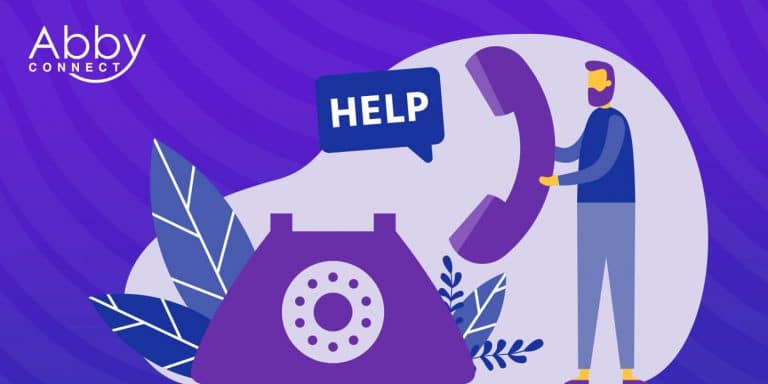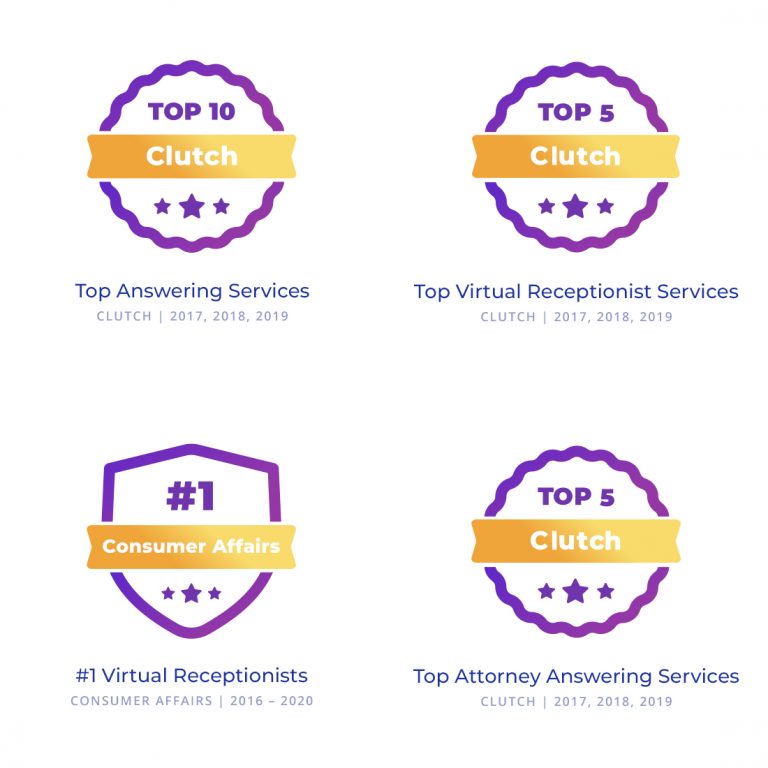
Running a successful business means making and taking phone calls. It’s unavoidable and phone anxiety (telephobia) makes it even harder.
In a world with email, texting, live chat, social media posts, and dozens of other tools for communications, a live phone call can feel a little… scary. It can be anxiety-inducing.
For some people, talking on the phone feels more natural, faster, and easier. For others, our phone experiences are driven by anxiety—requiring us to rehearse what we’ll say, work ourselves up to picking up the phone, and causing considerable stress. An unexpected phone call can be paralyzing.
Psychologists in an article for The Cut suggested that this fear comes from:
- Not knowing what the other person is thinking
- Pressure related to time
- Fear of judgement
- Lack of practice
If you’ve self-diagnosed with phone anxiety, don’t worry! We’re here to help with 5 top tips for overcoming your phone anxiety.
1. Practice
The first tip that will help you overcome phone anxiety is perhaps the hardest one. The best way to get less anxious about phone calls is to… make phone calls.
Whenever we avoid what makes us anxious, it tells our brain that we’re right to be anxious. Making phone calls (even if they are sometimes awkward or frustrating) teaches us that it’s not such a big deal after all. While continuing to avoid the call convinces us that we’re right to be anxious. That’s not the message we want to send!
Essentially, practice makes perfect.
Here’s some tips:
- Start with making low stakes calls in your personal life (call a friend, the doctor, or your mom!)
- Let yourself have some awkward moments in phone calls and remember it isn’t a big deal
- When possible, make the call instead of asking them to call you
- Prepare for your practice calls in advance
Talking on the phone just is awkward sometimes. Once you get comfortable and accept that some awkwardness is okay, the process gets so much easier!
2. Prepare
Outbound calls (the calls you make)
When you’re calling someone, you have the opportunity to prepare in advance. You know it’s coming so you can manage your phone anxiety in advance.
To prepare for the call, consider the following:
- What’s the tone (why are you calling, how well do you know each other, what feelings are associated with the call)
- What’s the agenda for the call (are you calling to set an appointment or get certain information?)
- How much time are you giving the call (consider setting a time frame for the call and letting them know in advance)
- What’s next (offer a follow up call or email if necessary, or just thank them and go on your way!)
Take 5-10 minutes before the call to think through your preparations and consider writing down your expectations for the call. It’s much easier to be confident when you’re prepared.
Inbound calls (the calls you receive)
Whether you’re answering the phone yourself or your receptionist is forwarding calls to you, receiving calls can be a lot harder than making them. You don’t always decide when they happen, and you can’t always prepare for the specifics of the call. Instead, you can create some templates for yourself to work from.
Generally, you can break callers into potential customers, existing customers, vendors/partners/other, and solicitors/other unnecessary calls. The trick is to create standard tools you can use on each type of call.
These can look like:
- A standard greeting
- A boilerplate about your company that you can use when talking to potential customers
- FAQs for potential customers
- FAQs and resources for existing customers who have questions
- The contact information for other members of your team that you can provide for callers
- A customer intake template
- A standard template for scheduling a more in-depth call
- A standard follow-up email
Of course, you can’t prepare for every situation, but you can create templates and standards to build from. Once you start with the standard templates, you can become more comfortable, and it becomes easier to handle your incoming calls.
3. Smile
Overcoming phone anxiety is half practical and half your emotional response. When it comes to reducing your anxiety and improving a phone call’s overall experience – a smile can make a big difference.
That’s right. Smile while you’re on the phone.
A smile has been proven to improve your mood, reduce stress, and put customers at ease—even if they can’t see it! It can help you start a call with the right tone, diffuse a difficult call, and create a better impression. Internally it’ll help your shoulders unknot, your voice to stabilize, and your comfort to grow.
Research has shown that people can actually “hear” you smiling on the phone! So, you and the caller both benefit!
4. Pause
Phone anxiety can show up in a couple of different ways (other than not wanting to answer the phone in the first place). Your hands may shake, your voice may waver, and you may feel your muscles knot.
This will often cause you to talk quickly and maybe stumble over your words.
The best thing to do? Pause.
In fact, pause often. Pausing gives the person on the other end of the line time to respond without interrupting, contribute to the conversation, and think out loud. It gives you the opportunity to take a step back, slow down, and destress a little. Pausing on the phone may feel to you more unnatural than it seems to them. In conversation, pauses are natural!
While you’re pausing or listening to the other caller, give yourself time to take a big breath and calm yourself. Pacing a call will ensure its better quality, doesn’t require another follow up call, and you don’t sound frazzled!
Check out our post on 10 Ways to Sound Better on the Phone for even more help making the best of your phone calls.
5. Take the Pressure Off
Finally, remind yourself that every call doesn’t need to be perfect, and you don’t always have to solve the problem on the phone!
Don’t know the answer? Say something along the lines of “I’d love to look into that for you, is there an email address where I can send some resources?”
Is the call going too long? Apologize to your caller and offer a follow-up on the channel of their choice! Confirm a time on the call so they trust that you intend to follow through.
Did that last call really stress you out? Don’t feel bad about rewarding yourself for getting through it and take a short break from the phone.
Essentially, give yourself a break. Sometimes phone calls are hard, even for seasoned professionals.
Let Abby Connect Help
Abby Connect is your phone management expert—for the hard and easy calls! When you work with Abby’s virtual receptionist service you get a dedicated team of 5-10 receptionists who get to know your business, who sound like they’re at your front desk when they answer the phone.
We take the pressure of the first impression off your shoulders and ensure you only get the calls you want to get. We’ll filter out the spam callers, forward the important calls to you, take messages, provide FAQs, do intake, and even schedule appointments! We’re an extension of your team that’s designed to take the phone anxiety off your chest. Our customer service experts can help you impress callers, grow your business, and take back your productive time—24/7.

